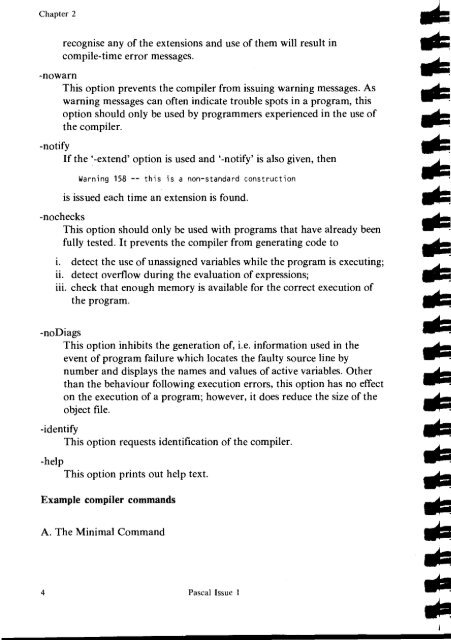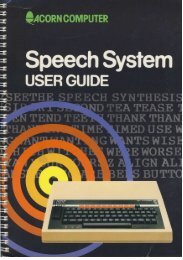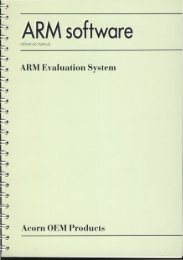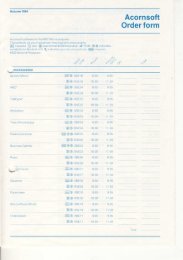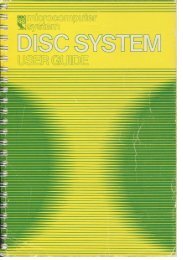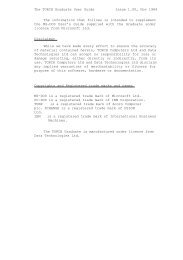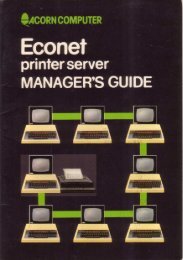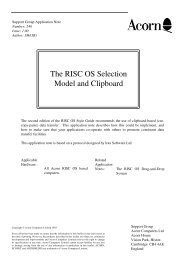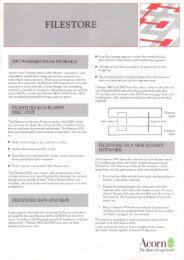ISO Pascal reference manual
ISO Pascal reference manual
ISO Pascal reference manual
You also want an ePaper? Increase the reach of your titles
YUMPU automatically turns print PDFs into web optimized ePapers that Google loves.
Chapter 2<br />
recognise any of the extensions and use of them will result in<br />
compile-time error messages.<br />
-nowarn<br />
This option prevents the compiler from issuing warning messages. As<br />
warning messages can often indicate trouble spots in a program, this<br />
option should only be used by programmers experienced in the use of<br />
the compiler.<br />
-notify<br />
If the `-extend' option is used and `-notify' is also given, then<br />
Warning 158 -- this is a non-standard construction<br />
is issued each time an extension is found.<br />
-nochecks<br />
This option should only be used with programs that have already been<br />
fully tested. It prevents the compiler from generating code to<br />
i. detect the use of unassigned variables while the program is executing;<br />
ii. detect overflow during the evaluation of expressions;<br />
iii. check that enough memory is available for the correct execution of<br />
the program.<br />
-noDiags<br />
This option inhibits the generation of, i.e. information used in the<br />
event of program failure which locates the faulty source line by<br />
number and displays the names and values of active variables. Other<br />
than the behaviour following execution errors, this option has no effect<br />
on the execution of a program; however, it does reduce the size of the<br />
object file.<br />
-identify<br />
This option requests identification of the compiler.<br />
-help<br />
This option prints out help text.<br />
Example compiler commands<br />
A. The Minimal Command<br />
4 <strong>Pascal</strong> Issue 1


